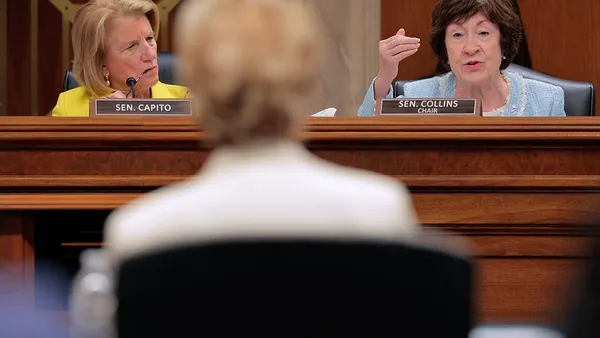Dive Brief:
- Location, school culture, school leadership and greater flexibility in curriculum and teaching ranked as the top four factors for teachers when applying for positions, according to a February survey by SchoolCEO, a K-12 marketing magazine. The four least important aspects teachers cited were school size, student performance, career advancement opportunities and mentorship programs.
- Nearly 39% of teachers surveyed at least somewhat agreed that salary and benefits mainly influenced their decision to work in their current school district. Almost 20% were neutral on that point, and 42% disagreed at some level.
- When it comes to job satisfaction, about 65% of teachers agreed to some extent they were happy with their position, nearly 15% were neutral, and roughly 21% disagreed. If given the opportunity, 40% agreed they would leave education, while 17% were neutral, and 43% said they at least somewhat disagreed with moving to another field.
Dive Insight:
As some states begin to see signs of a worsening teacher shortage, the SchoolCEO survey provides district leaders with a glimpse of what matters most to teacher applicants. The survey polled more than 1,000 teachers from 300 randomly selected districts.
“The current teacher shortage means that school districts must be strategic about how they recruit and retain educators,” SchoolCEO Editor Melissa Hite said in a statement. “While districts cannot control their location, they can certainly control their leadership and school culture.“
The survey backs up other findings that continue to show a significant portion of teachers are considering leaving the profession. A February report from Horace Mann Educators Corp., a financial services company focusing on educators, found 63% of educators are considering quitting teaching.
It is notable in the current climate that the SchoolCEO survey found flexibility in curriculum to be the fourth top choice for teachers choosing a district.
A January RAND Corp. survey found 1 in 4 teachers have had to change their curriculum and instruction due to local and state restrictions on topics regarding gender and race. Such limitations on curriculum are negatively impacting teachers’ working conditions, according to the RAND report.
Teacher pay — another key point for teacher applicants — has been getting increased attention as a cause for the teacher shortage and a factor for young people not going into the profession. Raising teacher pay has been gaining momentum in state legislatures this year and got a nod from President Joe Biden this week during his State of the Union speech.
On Monday, Tennessee Gov. Bill Lee pushed for an additional $125 million for teacher pay raises in the state. Florida Gov. Ron DeSantis is also proposing an additional $200 million to fund hikes to teacher salaries. In January, Utah passed an $8,400 annual teacher salary boost in conjunction with creating the state’s new universal education savings account.







 Dive Awards
Dive Awards





